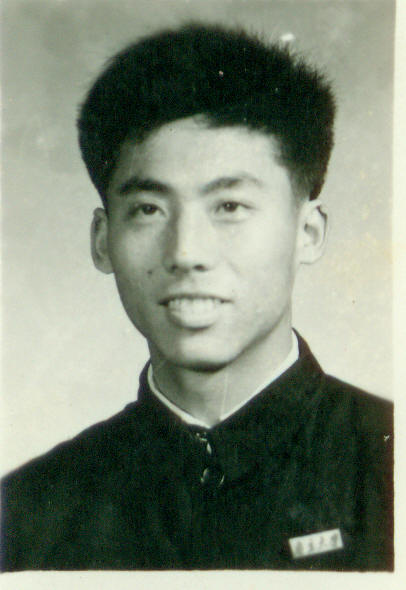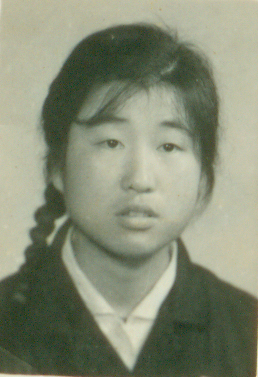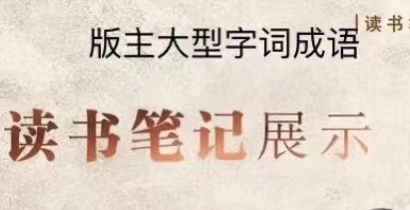All of the undergraduate courses in NJU at that time lasted 5 years. When we entered 1968, we realized that we would soon leave school. Where would we go after the graduation? What kind of job would we do in the future? I began to inquire our teachers where their classmates were working now. I got to know the names of some senior female and male alumni and where they were working in Nanjing. I went there with some classmates, and sometimes only with Mailan Zhang. In order to be able to get the reception from their unit, we said that we came to do some investigation work and would put forward the German education reform plan. We had paid visit to the Provincial Communication Office with Foreign Countries, Nanjing wire telephone factory, Nanjing Institute of Metal Research, Nanjing Foreign Language School and etc. We were warmly received by our senior alumni and got to understand their badness and goodness in their work in German. A translator of the Institute of Metal Research told us that the research specialist discovering an article in German which was related to his or her research project asked him to translate into Chinese. The translator worked day and night to a frazzle, but when the specialist browsed the translation, saying “Oh, this content”. He considered it valueless and let it in the drawer, sleeping. The translator’s self-respect suffered bitter injury and unavoidably they became emotionally disturbed. Hearing the story, I had the idea that the research specialists should not depend on translators, and they should improve their foreign language of their own instead. The interpreters of the Communication Office told us some jokes about their work. In 1958, Zedong Mao said that the people’s commune was good. A foreign guest asked a Party secretary of a commune the advantages of the commune. The secretary used Chairman Mao’s quotation, saying that the people’s commune was in Chinese“一大二公”. The interpreter understood that “一大” meant that the scope and the population of the commune were much larger than those of the advanced cooperative. What did it mean by two “公”? He thought of the high degree of the public ownership system. What was the second “公”? He asked the Party secretary, who answered that he only knew “一大二公” and didn’t know the actual contents. Actually, “二公”meant that the second was “公”, not two “公”. The interpreter was so worried, as to resulting in the whole body sweating. There was another interpreter who translated the name of the film “地下尖兵”(secret brave soldier) as the underground soldier wearing a sharp hat and “说到曹操曹操就到”(when you mention somebody, he or she is just coming) as the person coming is Mr. Cao. All those stories told me that a qualified interpreter must own overall knowledge and those who was lazy in learning couldn’t undertake such a job. The German teachers of Nanjing Foreign Language School told us that not all the students studying German in their school could be admitted as German majors in the university and the parents whose kids could not receive higher education complained everywhere and didn’t know where their sons or daughters could go. The investigation helped me to understand the actual situation in the society, which caused me to expect that there would be many problems we would face to work in German.
There seemed endless confusion in the school and resuming classes was impossible. We had only two years for German classes, only learning the basic knowledge. How we could be qualified for the future work. I talked with other classmates about it and some of us who had a common goal agreed to finish a project conforming with the trend of the times, namely to gather the popular German expressions during the Cultural Revolution, such as “the person in power taking the capitalist road”, “the three articles from Mao”, “the fighting team”, “double-dealer”, “chameleon”, “fish the straw/rubbish” and etc. We read the magazine of “Beijing Review” in German and wrote down the new-born expressions and then compiled in the order of the Chinese Pinyin. We went to the printing shop of NJU and met with an old typist who could type western languages, such as English, German, French and Spanish. He only looked at the script while typing, and the typing speed was beyond my imagination, much faster than the Chinese typist. At that time the Chinese typewriter had just appeared with a large matrix case, on which hundreds of frequently used Chinese characters were arranged, with the most frequently used ones in the middle, forming the popular phrases. The speed of the Chinese typewriter was faster than that of type-setters who used tweezers to clamp types to typeset, but couldn’t compare with that of the English typewriter.
The whole compiling work of the popular German expressions of the Cultural Revolution was done completely manually. I took an active part in it and Xiuzhong Yan worked whole-heartedly, who was from Jianhu, Yancheng and a member of our “Experiencing Wind and Rain March Team”. Without the instruction of any teacher, we fumbled and completed it in the end. Now that book was of no use, but it was for the first time that I took part in a compiling work with profound impression.
During the Cultural Revolution another activity related to German was that I often read the magazine “Red Flag” from Austria. I spent money subscribing the magazine and read the fine prints in every page when I got a new issue. After reading I wrote letters to the editor, expressing my feeling. Its editorial department made my letters issued in the column of the readers’ letters. The teachers and some students read my letters in the magazine and told me the news. It was for the first time that my article in German was published and I didn’t think at all that it was also the last time.
Our leaving NJU was delayed for one whole year. In July of 1970, the allocative decision made almost all of us hopeless except 6, who were sent to the Ministry of Foreign Affairs. There were only four whose positions were in the provincial municipalities and all the others went to the counties. Meilan Zhang and I went to Tongshan County of Xuzhou District to register, not knowing at all what we would do in the future. However, one thing was sure that we could not work in German. The beautiful dream was completely disillusioned. The government had spent so much money schooling us and now we could not use what we had learned. We were concerned about our career future very much and did not know what would happen to us. Getting angry would be of no use and most of our school and classmates had the same doom. We had no alternative but to have a look at one step after another.
graduate photos |
|
Dec. 9 2008 in Melbourne
Proofreading on Feb. 3 of 2012 in Chicago
Uploading on Aug. 4 2023 in Xuzhou











